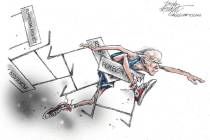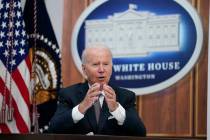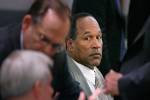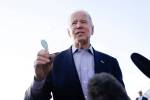Our nation is in desperate need of a history and civics revival
In our internet-connected world where cute is king and issues of substance tend to be discussed only if there’s a catchy meme to share, people are far likelier to know that Sept. 17 was National Apple Dumpling Day than that it marked the start of Constitution Week.
Pity the starry-eyed individual who wrote the official proclamation of Constitution Day and Citizenship Day 2016, which the White House sent out to its press list late last Friday:
“The vision of self-government laid out in our Constitution is dependent on Americans doing the hard and sometimes frustrating — yet always essential — work of citizenship,” read the proclamation signed by President Obama. “Being a citizen is a responsibility that challenges each of us to stay informed, to speak out when something is not right or not just, and to come together to shape the course our country will take. Citizenship is a commitment, calling on us to stand up for what we believe in and to exercise our rights to protect the rights of others.”
It’s difficult to imagine a time when our nation’s young people were less suited for the responsibilities of citizenship, given public schools’ neglect of civics.
In May 2015, the National Assessment of Educational Progress released its report card on history, civics and geography and found that only 18 percent of all eighth-graders assessed were at or above proficiency (defined as demonstrating competency of subject-matter knowledge, application of such knowledge to real-world situations, and related analytical skills) in U.S. history. Only 23 percent were at or above proficiency in civics.
This came as no surprise to anyone who knows what passes for “history” class in districts across the country.
If you have children in public schools, you know the curriculum is heavy on personal essays about hot-topic “social issues” and light on reading historical texts or having to remember historical dates, figures or events.
In 2015, the Thomas B. Fordham Institute analyzed public schools’ mission, vision and values statements to see whether the system views the preparation of students for participation in democratic life as central to education and an essential outcome.
The Fordham Institute found that 60 percent of the country’s 100 largest school districts (which represent about 11 million students) had mission statements that did not mention civics, citizenship or democracy. Of all the mission statements they examined, the term “U.S. citizenship” appeared only once.
Along those lines, the Fordham Institute found, the words “patriotic” and “patriotism” did not appear at all in any of the public statements they reviewed.
In a recent column about the ways in which American patriotism can be used to provoke positive political change, The New York Times’ David Brooks lamented that “many schools no longer teach American history, so students never learn the facts and tenets of their creed. A globalist mentality teaches students they are citizens of the world rather than citizens of America.”
As someone who trained in a social-justice-focused teacher prep program and has seen a whole lot of social studies homework both as an educator and a parent, I can vouch that there’s a lot of overtly anti-American “American History” instruction going on in public schools.
There’s an argument for public schools teaching history and civics in a manner that is both rigorous and critical in order to prepare students to make smart choices about their role in a democratic society.
But most students on the last NAEP civics test could not answer questions about checks and balances or understand the policy implications of a trend using a graph. And they’re supposed to someday understand the implications of our current election?
“Presidential elections have always been the ultimate ‘teachable moment,’ ” said Robert Pondiscio, a senior fellow at the Fordham Institute, in an email. “Given the strong feelings created by Trump and Clinton, and widespread disappointment in both as reflected in polls, it would be lovely if the election led to an enhanced interest in civic education, or a civics and history revival. We could certainly use it.”
Esther Cepeda’s email address is estherjcepeda@washpost.com.























